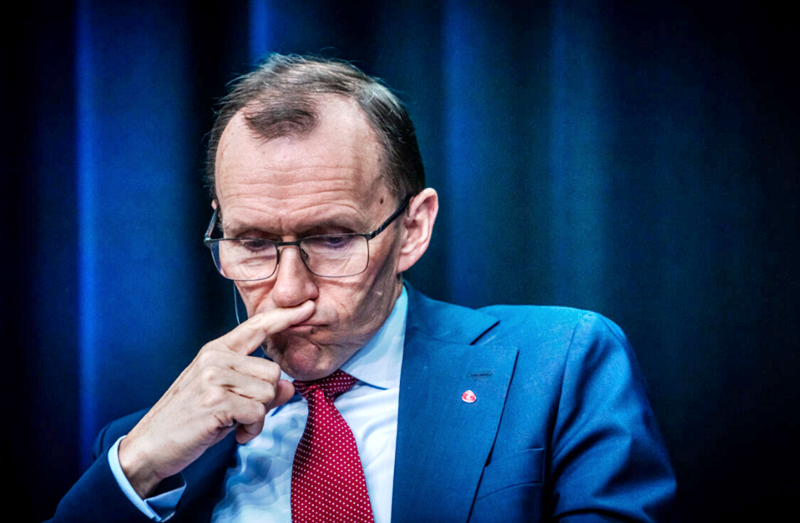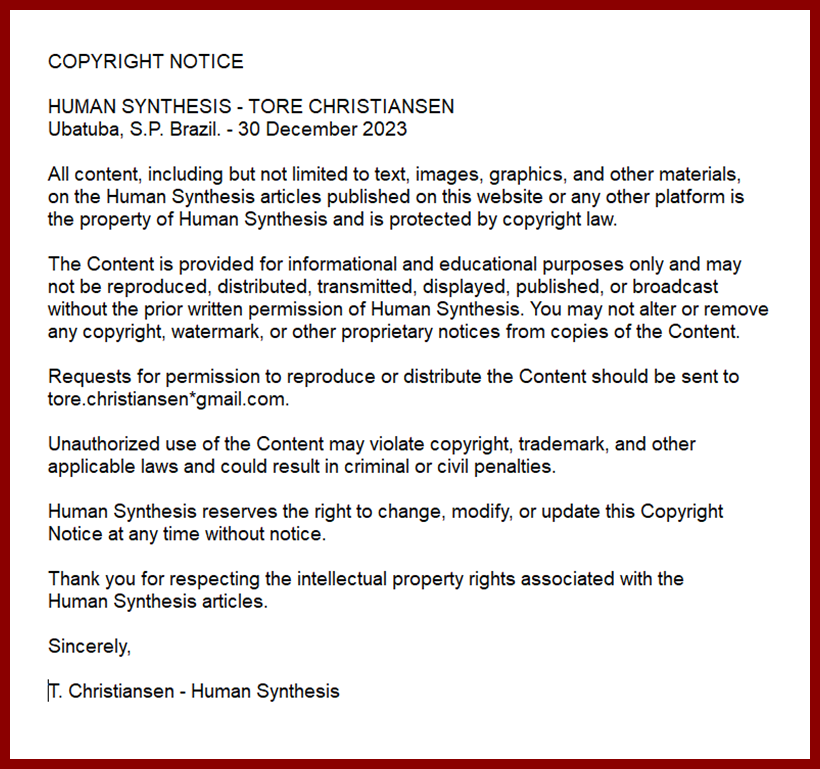Panic Spreads Among the Elites

By Document - Per Antonsen – April 7, 2025
The shock treatment that the U.S. president has subjected our political leadership to has brilliantly revealed something that many were completely unaware of. No one has told us how, as one of the world's richest countries, we still exploit and practically leech off the kindness the U.S. showed us after rescuing us from the Nazi yoke during the war.
We lulled ourselves into believing that the Americans were almost obliged to ensure lasting world peace and to supply us with military, political, and economic security—without it really costing us much.
“A stupid person is more dangerous than a bandit.” (Carlo Cipolla)
We see this expectation very clearly in the immediate reactions from both political leadership and the media’s circle of "experts" who obligatorily appear on TV with their explanations and theories. A typical example is NRK’s Cecilie Langum Becker, who, in her role as NRK’s spokesperson on economic matters, says: “U.S. President Donald Trump has started a trade war based on what is most likely incorrect numbers.” But was it the numbers that were Trump’s point, or did he have an entirely different purpose with his statement? And on what basis does she build her probability hypothesis?
When Trump states, with all desired clarity, that he wants to bring about a shift toward more mutual fairness due to a documented glaring imbalance in U.S. trade with the world, our publicly funded media and our politicians portray it as though he is, without reason or warning, introducing punitive tariffs and retaliatory tariffs that could damage our economy to such an extent that we might be forced into the EU. But Trump didn’t say a word about punishment or retaliation. He wanted to take a step toward reciprocity in the regulation of international trade.
The immediate reaction from the government was also revealing. The foreign minister, who was scribbling notes for a speech at a NATO meeting, believed he understood that Trump’s proposal conflicted with NATO cooperation, where Article 2 of the Atlantic Charter obliges us to “seek to eliminate conflict in their international economic policies and encourage economic collaboration between them.” Did it not occur to him that the very conflict Trump wanted to eliminate was the tariffs that Norway and many other countries impose on imports of American goods, thereby weakening the economic cooperation encouraged by the NATO pact?
No less depressing was the first comment from our newly appointed finance minister and former NATO chief, Jens Stoltenberg, who declared that Trump’s proposal for mutual regulations was “…the most serious setback for free global trade we’ve seen since the interwar period.” The government received strong support for its doomsday tone from the academic community, which claims that the idea of reciprocal tariffs “makes no sense.”
What we missed in all the commentary was an explanation of why a certain degree of reciprocity in the use of tariffs and similar import duties is so wrong when the U.S. imposes them, yet not wrong at all when countries like Norway impose hundreds of percent in tariffs and duties on American products—products we don’t even produce in Norway, and which therefore cannot be called protective tariffs, like those we've imposed on agricultural products.
A classic example among many in this area is the Norwegian tariff and import duty on American cars. Here we don’t just apply the so-called one-time fee on car imports, but also slap on a 25 percent value-added tax (VAT), meaning American cars can end up costing 2–3 times more in Norway than in the U.S.—something that strongly favors imports from countries other than the U.S.
What is it about this example that proves President Trump’s proposal is unlawful, unreasonable, or harmful to the global economy? The answer is, of course, nothing at all—something that was, fortunately, at least somewhat illuminated during the program Debatten on Thursday night.
The entire hysterical display we’ve otherwise seen from the political leadership and the media’s “experts” reveals that it is we who have issues with tariffs, VAT, and other import duties—not the U.S. President Trump has brilliantly exposed that we are governed by a group of rather incompetent politicians who could very well lead the country and the economy into disarray if allowed to continue. A clearer warning of what’s at stake in the fall elections could hardly be given.
Buy Hans Rustad's book on Trump here!
You can buy the e-book [here].
